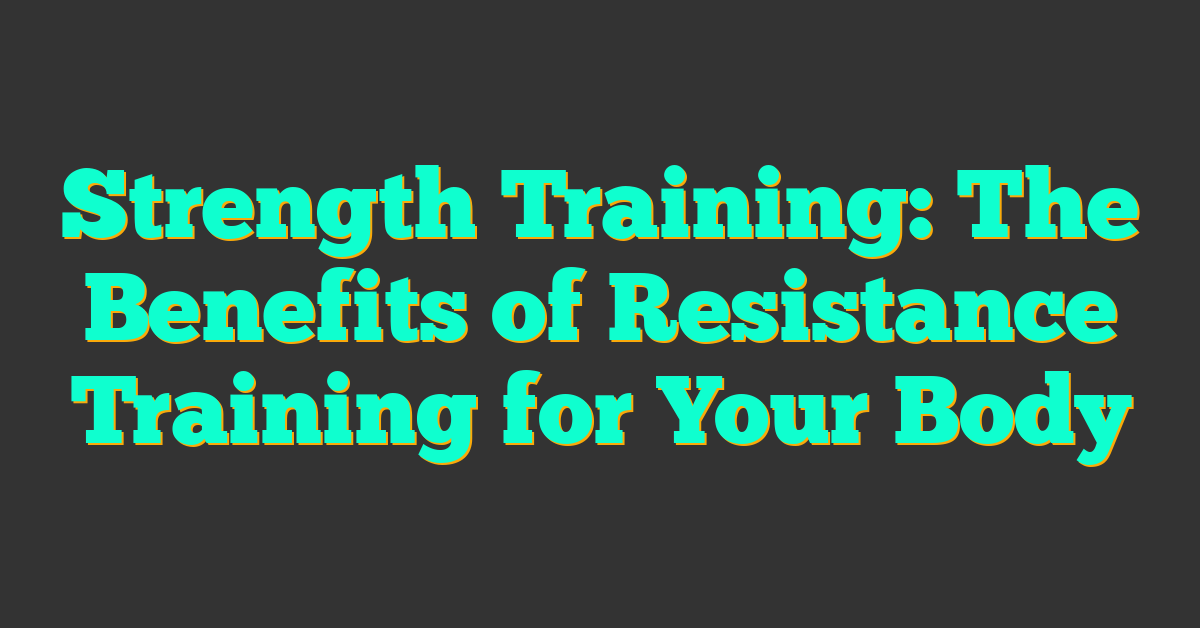Can a pregnant woman race a triathlon? This is a question that many women may ask themselves when they find out they are pregnant. Triathlons are physically demanding, and the idea of participating in one while pregnant may seem daunting. However, with proper preparation and medical supervision, it is possible for pregnant women to participate in and even complete a triathlon.

Understanding Pregnancy and Triathlon Participation
Pregnancy is a unique and complex experience for every woman, and it is important to consult with your doctor before participating in any physical activity during pregnancy. The American College of Obstetricians and Gynecologists (ACOG) recommends that pregnant women engage in moderate physical activity for at least 30 minutes per day, most days of the week. This may include activities such as walking, swimming, or cycling. However, the guidelines also state that pregnant women should avoid activities that carry a high risk of falling, such as skiing, horseback riding, and contact sports.
Training for a Triathlon During Pregnancy
If you were an active triathlete before becoming pregnant, it may be possible to continue participating in triathlons during your pregnancy. However, you will need to make modifications to your training routine to accommodate the changes in your body. This may include reducing the intensity and duration of your workouts, increasing your rest time between workouts, and focusing on low-impact activities such as swimming and cycling. You may also need to adjust your expectations for your race performance and be prepared to take breaks as needed during the race.
Key Takeaways
- Pregnant women can participate in triathlons with proper preparation and medical supervision.
- Consult with your doctor before participating in any physical activity during pregnancy.
- Modify your training routine to accommodate the changes in your body and adjust your expectations for your race performance.
Understanding Pregnancy and Triathlon Participation
https://www.youtube.com/watch?v=V8H_aEMY1_0&embed=true

If you are a pregnant athlete, you may wonder whether it is safe to continue participating in triathlons during your pregnancy. While the answer to this question may vary depending on individual circumstances, there are some general considerations to keep in mind.
The Impact of Pregnancy on Athletic Performance
Pregnancy can have a significant impact on athletic performance. During the first trimester, you may experience fatigue, nausea, and other symptoms that can make it challenging to maintain your usual exercise routine. As your pregnancy progresses, you may also experience changes in your body that can affect your ability to perform at your best.
However, it is important to note that every pregnancy is different. Some athletes may find that they are able to continue participating in triathlons throughout their pregnancy with minimal changes to their performance. Others may need to adjust their training and competition schedules to accommodate their changing bodies.
Safety Considerations for Pregnant Athletes
If you are considering participating in a triathlon during your pregnancy, it is important to consult with your healthcare provider first. They can help you determine whether it is safe for you to continue participating in athletic activities during your pregnancy, taking into account any underlying conditions or complications.
In general, if you have an uncomplicated pregnancy and have been participating in triathlons prior to becoming pregnant, it may be safe to continue with some modifications. However, it is important to listen to your body and make adjustments as needed. For example, you may need to modify your training routine to avoid activities that increase your risk of falling or experiencing trauma to your abdomen.
In addition to consulting with your healthcare provider, it is also important to pay attention to your body and be aware of any warning signs that may indicate a problem. If you experience any unusual symptoms or discomfort during exercise, such as vaginal bleeding, contractions, or dizziness, stop immediately and seek medical attention.
Overall, participating in triathlons during pregnancy is a personal decision that should be made in consultation with your healthcare provider. While some athletes may be able to continue participating with modifications, others may need to take a break or adjust their training routine. By being aware of the potential risks and taking steps to mitigate them, you can help ensure a safe and healthy pregnancy and childbirth.
Training for a Triathlon During Pregnancy
https://www.youtube.com/watch?v=UHvxftOU1jU&embed=true
Preparing for a triathlon during pregnancy requires some adjustments to your training plan. It’s essential to prioritize your health and the health of your baby while maintaining your fitness. Here are some tips to help you adapt your training plan:
Adapting Your Training Plan
Consult with your healthcare provider before starting or continuing any exercise during pregnancy. Your doctor can help you determine what is safe and appropriate for you and your baby. Your training plan should be tailored to your fitness level and pregnancy stage. As your pregnancy progresses, you may need to modify your training plan to accommodate your changing body.
Exercise Intensity and Volume
During pregnancy, you should avoid high-intensity workouts that could put you and your baby at risk. Instead, focus on moderate-intensity exercise that keeps your heart rate within a safe range. You may also need to adjust the volume of your workouts to prevent overexertion. Listen to your body and don’t push yourself too hard.
Incorporating Rest and Recovery
Rest and recovery are essential components of any training plan, especially during pregnancy. Your body is working hard to support your growing baby, so it’s crucial to give yourself time to recover between workouts. Adequate hydration is also critical to support your body’s recovery. Make sure to drink plenty of water before, during, and after your workouts.
In summary, maintaining an active lifestyle during pregnancy can be beneficial for both you and your baby. However, it’s essential to adapt your training plan to accommodate your changing body and prioritize your health and the health of your baby. Consult with your healthcare provider, focus on moderate-intensity exercise, and prioritize rest and recovery to prepare for a triathlon during pregnancy.
Nutrition and Hydration for Pregnant Triathletes
https://www.youtube.com/watch?v=W0BC7ppu7MM&embed=true
As a pregnant triathlete, it is essential to maintain a healthy and balanced diet. You are not only eating for yourself but also for your growing baby. Proper nutrition is crucial for the development of your baby and to ensure that you have enough energy for your training and racing.
Balancing Diet for Two
During pregnancy, it is recommended to increase your daily caloric intake by 300-500 calories. However, this can vary depending on your pre-pregnancy weight and activity level. It is important to consume a variety of nutrient-dense foods, including fruits, vegetables, whole grains, lean proteins, and healthy fats.
Folic acid is an essential nutrient for pregnant women. It helps prevent birth defects of the baby’s brain and spine. You can get folic acid from foods like leafy green vegetables, beans, and fortified cereals. It is also recommended to take a folic acid supplement of 400-800 micrograms per day.
Iron is another important nutrient during pregnancy. It helps produce hemoglobin, which carries oxygen to your baby. You can get iron from foods like lean red meat, poultry, fish, beans, and fortified cereals. It is recommended to consume 27 milligrams of iron per day during pregnancy.
Hydration Needs During Training
« Can a Bike Pannier Bag Double as a Triathlon Transition Bag?
Can Basketball Shoes Be Used for Running and Vice Versa? A Friendly Guide to Choosing the Right Footwear for Your Workouts »
Staying hydrated is crucial during training and racing, especially when pregnant. Dehydration can lead to preterm labor, low birth weight, and other complications. It is recommended to drink at least 8-10 cups of water per day, and even more during exercise.
During longer workouts, you may need to replenish electrolytes lost through sweat. Sports drinks can be a good option, but be sure to choose one without caffeine and limit your intake of added sugars.
In conclusion, maintaining a balanced diet and staying hydrated are essential for pregnant triathletes. Be sure to consume a variety of nutrient-dense foods, including folic acid and iron-rich foods. Stay hydrated by drinking plenty of water and replenishing electrolytes lost through sweat during exercise.
The Role of Medical Supervision and Support

When it comes to racing a triathlon during pregnancy, it’s important to prioritize your health and safety. Consulting with a physician is a critical step in ensuring that you are fit to continue training and racing. Your doctor can provide guidance on how to modify your training routine to accommodate your pregnancy, as well as monitor your health throughout the process.
Consulting with a Physician
Your physician can help you determine whether it’s safe to continue racing a triathlon while pregnant. They can evaluate your health and fitness levels, as well as advise you on any modifications that may be necessary. For example, they may recommend that you avoid high-impact activities or adjust your heart rate targets during exercise.
Monitoring Health and Fitness Levels
Throughout your pregnancy, it’s important to monitor your health and fitness levels closely. This can help you identify any potential issues early on and take steps to address them. You may want to track your heart rate during exercise, for example, to ensure that it stays within a safe range. Additionally, you should be aware of any warning signs that may indicate a problem, such as dizziness or shortness of breath.
By working closely with a physician and monitoring your health and fitness levels, you can continue to race a triathlon during pregnancy in a safe and healthy manner. Remember to prioritize your health and safety at all times, and don’t hesitate to seek medical attention if you have any concerns.
Personal Stories and Motivation
https://www.youtube.com/watch?v=IRADIGTWoIM&embed=true
Inspirational Accounts of Pregnant Triathletes
If you’re a pregnant woman who loves triathlons, you’re not alone. Many women have competed in triathlons while pregnant and have inspiring stories to share. For example, Dr. Sydney Haggins shares her experience of training for and racing an Ironman while pregnant in this Triathlete article. Her story is a testament to the fact that pregnancy doesn’t have to stop you from pursuing your athletic goals.
Another inspiring story is that of professional triathlete Sarah Haskins, who competed in the Olympic distance triathlon while 8 months pregnant. Her story is a reminder that with the right preparation and mindset, it’s possible to continue training and competing at a high level even during pregnancy.
Maintaining Motivation and Setting Realistic Goals
Maintaining motivation can be a challenge for any athlete, but it can be especially difficult during pregnancy. It’s important to remember that your body is going through a lot of changes, and you may not be able to train at the same level as before. It’s important to listen to your body and adjust your training accordingly.
Setting realistic goals can also help with motivation. Instead of focusing on winning or achieving a personal best, focus on enjoying the experience and staying healthy. Consider competing in shorter races, such as sprint or Olympic distance triathlons, instead of Ironman 70.3 or full Ironman races.
In addition, it’s important to have a support system in place. Surround yourself with people who will encourage and support you, and who understand the challenges of training and competing while pregnant. This can include family, friends, coaches, and other athletes.
Remember, every pregnancy is different, and what works for one woman may not work for another. It’s important to consult with your doctor before starting or continuing any exercise program during pregnancy. With the right mindset, preparation, and support, however, it’s possible to continue pursuing your passion for triathlons while pregnant.
Frequently Asked Questions
https://www.youtube.com/watch?v=YE0RoETf0DM&embed=true
Is it safe to participate in a triathlon during pregnancy?
If you were already an active athlete before pregnancy, there is no harm in continuing your training or even racing a triathlon. However, it is essential to evaluate how active you were before pregnancy. Expert opinions haven’t always supported the idea of participating in a triathlon during pregnancy, but if you can tolerate high-intensity workouts, then there is no risk in continuing your training or even racing a triathlon.
What are the guidelines for competing in a half Ironman while expecting?
If you are planning to compete in a half Ironman while pregnant, it is crucial to consult with your doctor first. Usually, the guidelines for competing in a half Ironman while pregnant are the same as for any other triathlon event. It is essential to listen to your body and not push yourself too hard. Make sure to stay hydrated and take breaks when needed.
How does pregnancy affect triathlon training and participation?
Pregnancy affects triathlon training and participation differently for different women. Some women may experience fatigue and nausea, while others may not have any symptoms at all. It is essential to listen to your body and not push yourself too hard. It is also crucial to stay hydrated and take breaks when needed.
What precautions should pregnant athletes take when racing?
Pregnant athletes should take certain precautions when racing. It is essential to stay hydrated and take breaks when needed. It is also crucial to listen to your body and not push yourself too hard. Make sure to wear comfortable clothing and shoes. You may also want to consider wearing a supportive belly band.
Are there specific triathlon events that accommodate pregnant participants?
There are no specific triathlon events that accommodate pregnant participants. However, some events may allow pregnant participants to compete. It is essential to check with event organizers before registering.
Can expectant mothers maintain their running routine in the second trimester?
Expectant mothers can maintain their running routine in the second trimester. However, it is crucial to listen to your body and not push yourself too hard. Make sure to stay hydrated and take breaks when needed. You may also want to consider wearing a supportive belly band.










